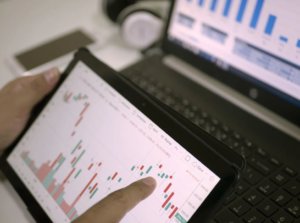What You Need To Know Before Trading CFDs – Op Ed
Wyoming-based part time retail trader Daniel Miller looks at trading CFDs from his perspective

By Daniel Miller, part-time trader from Wyoming, United States.
For those seeking alternative ways to invest, CFD sometimes comes up as an interesting option. It can be an effective way to trade assets without actually buying those assets or any related stocks. But if you aren’t quite clear on the details of CFD trading, don’t worry! Most people don’t know exactly what it is until they look into it.
In this piece we’ll help you get a better idea by telling you a little more about what CFD trading entails and what you should know in advance if you’re going to try it.
CFD Trading Defined
Typically when you think of alternative investments, you think of either non-stock assets or different ways of accessing stock markets. Regarding the former, it’s often a commodity that comes to mind (like gold or oil), or perhaps the currency trade. As for the latter, investing apps have gained popularity, and offer people a different means of trading in conventional markets.
CFD trading is an alternative more in the sense that it is a different trading method altogether, though. When you trade through CFDs (which stands for Contract for Difference), you are almost making an informed wager. You’re purchasing a contract on the basis of a prediction that the asset at hand will rise or fall — as opposed to actually buying that asset to hold. It’s all organized quite simply: If you think an asset’s value will rise, you “buy,” and if you think it will fall, you “sell.”
Choosing Your Market
We won’t advise you as to which market you should actually choose, because really it should depend on your own analysis of any given asset’s potential. What’s important to note here though is that there are virtually innumerable assets that can be traded via CFDs. These include typical stocks, commodities, forex pairings, and now digital currency as well. A given CFD broker may occasionally allow trading for an asset that another does not, but generally speaking this full range of options should be available.
Getting Some Practice
With more ordinary investments, you may be aware that there are apps and software programs that effectively simulate markets to allow you to try your hand at trading without actually having anything at stake. Along these lines, there are CFD trading demos that you can access as well. These will expose you to guides and information about the CFD trade generally, and will allow you to get a feel for this form of investing before you actually start trading with your own money. For many first-time CFD traders, this is an invaluable part of the process.
Understanding Leverage
Leverage is a major part of CFD trading, though it’s difficult to define exactly. The idea generally is that by conducting leveraged trades, you can access more funds than you’re actually putting in. Your deposit effectively gives you access to a greater amount of money with which to make larger trades, if you so desire. This means that a successful investment can be significantly more profitable — though it also means that you risk losing a greater amount than you actually bought in with originally. The specific leveraged trading options available to you will depend on the broker and your deposit, and you also don’t have to use leverage. However, it’s common to see in CFD trading.
Understanding Stop/Loss
Stop/loss orders are also a part of CFD trading, and are particularly important if you are taking advantage of leveraged trading. Basically, these are orders you can work into your contracts to end them if an asset’s value dips to a certain level.
The current economic climate as of this writing actually provides ample examples for why stop/loss orders can be helpful. For instance, with markets having crashed in March, some are warning of another crash in the coming weeks or months. That makes many investors nervous, but they don’t actually want to stop trading. And one way to keep trading while mitigating risk is to implement stop/loss orders. Through these types of contracts you can set yourself up to accept a certain amount of loss — but you can guarantee that your trade won’t “hold on” if the asset’s value plummets in a crashing market.
Knowing The Risks
As with any investment, it’s also important to know the risks associated with CFD trading. For one thing, know that CFD trading is not immune to ordinary market risks. In fact, retail CFD traders experienced losses right alongside the traditional stock market during the aforementioned March crash. More specifically though, CFD trading also poses a few unique circumstances to aware of. Namely, you’ll want to be sure you have enough money in your account to cover any losses (because leveraged trading, as mentioned, can lose you more than you bought in with). Additionally, you should look into whether or not there are any potential fees involved with holding onto a trade beyond a set amount of time, as can sometimes be the case.
For the most part though, CFD trading carries roughly the same risks associated with any investment. The key is to be thorough in your preparation and make decisions according to your own financial situation. That sort of approach, coupled with basics and tips outlined above, can have you ready to try your hand at CFD trading.
The subject matter and the content of this article are solely the views of the author. FinanceFeeds does not bear any legal responsibility for the content of this article and they do not reflect the viewpoint of FinanceFeeds or its editorial staff.









